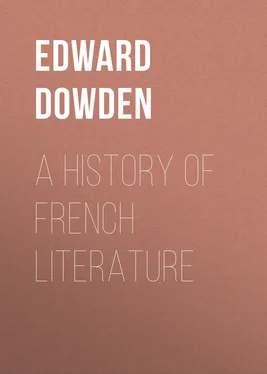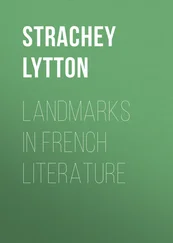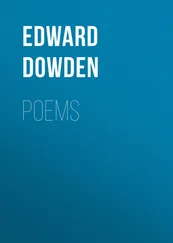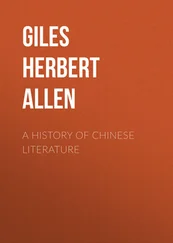Edward Dowden - A History of French Literature
Здесь есть возможность читать онлайн «Edward Dowden - A History of French Literature» — ознакомительный отрывок электронной книги совершенно бесплатно, а после прочтения отрывка купить полную версию. В некоторых случаях можно слушать аудио, скачать через торрент в формате fb2 и присутствует краткое содержание. Жанр: foreign_prose, foreign_home, Критика, Языкознание, foreign_antique, на английском языке. Описание произведения, (предисловие) а так же отзывы посетителей доступны на портале библиотеки ЛибКат.
- Название:A History of French Literature
- Автор:
- Жанр:
- Год:неизвестен
- ISBN:нет данных
- Рейтинг книги:3 / 5. Голосов: 1
-
Избранное:Добавить в избранное
- Отзывы:
-
Ваша оценка:
- 60
- 1
- 2
- 3
- 4
- 5
A History of French Literature: краткое содержание, описание и аннотация
Предлагаем к чтению аннотацию, описание, краткое содержание или предисловие (зависит от того, что написал сам автор книги «A History of French Literature»). Если вы не нашли необходимую информацию о книге — напишите в комментариях, мы постараемся отыскать её.
A History of French Literature — читать онлайн ознакомительный отрывок
Ниже представлен текст книги, разбитый по страницам. Система сохранения места последней прочитанной страницы, позволяет с удобством читать онлайн бесплатно книгу «A History of French Literature», без необходимости каждый раз заново искать на чём Вы остановились. Поставьте закладку, и сможете в любой момент перейти на страницу, на которой закончили чтение.
Интервал:
Закладка:
The earliest branches of the cycle have reached us only in a fragmentary way, but they can be in part reconstructed from the Latin Isengrinus of Nivard of Ghent (about 1150), and from the German Reinhart Fuchs , a rendering from the French by an Alsatian, Henri le Glichezare (about 1180). The wars of Renard and Isengrin are here sung, and the failure of Renard's trickeries against the lesser creatures; the spirit of these early branches is one of frank gaiety, untroubled by a didactic or satirical intention. In the branches of the second period the parody of human society is apparent; some of the episodes are fatiguing in their details; some are intolerably gross, but the poem known as the Branch of the Judgment is masterly—an ironical comedy, in which, without sacrifice of the primitive character of the beast-epic, the spirit of mediæval life is transported into the animal world. Isengrin, the accuser of Renard before King Noble and his court, is for a moment worsted; the fox is vindicated, when suddenly enters a funeral cortège—Chanticleer and his four wives bear upon a litter the dead body of one of their family, the victim of Renard's wiles. The prayers for the dead are recited, the burial is celebrated with due honour, and Renard is summoned to justice; lie heaped upon lie will not save him; at last he humbles himself with pious repentance, and promising to seek God's pardon over-sea, is permitted in his pilgrim's habit to quit the court. It is this Judgment of Renard which formed the basis of the Reineke Fuchs , known to us through the modernisation of Goethe.
From the date of the Branch of the Judgment the Renard Romances declined. The Judgment was imitated by inferior hands, and the beasts were more and more nearly transformed to men; the spirit of gaiety was replaced by seriousness or gloom; Renard ceased to be a light-footed and ingenious rogue; he became a type of human fraud and cruelty; whatever in society was false and base and merciless became a form of "renardie," and by "renardie" the whole world seemed to be ruled. Such is the temper expressed in Le Couronnement Renard , written in Flanders soon after 1250, a satire directed chiefly against the mendicant orders, in which the fox, turned friar for a season, ascends the throne. Renard le Nouveau , the work of a poet of Lille, Jacquemart Gelée, nearly half a century later, represents again the triumph of the spirit of evil; although far inferior in execution to the Judgment , it had remarkable success, to which the allegory, wearying to a modern reader, no doubt contributed at a time when allegory was a delight. The last of the Renard romances, Renard le Contrefait , was composed at Troyes before 1328, by an ecclesiastic who had renounced his profession and turned to trade. In his leisure hours he spun, in discipleship to Jean de Meun, his interminable poem, which is less a romance than an encyclopædia of all the knowledge and all the opinions of the author. This latest Renard has a value akin to that of the second part of Le Roman de la Rose ; it is a presentation of the ideas and manners of the time by one who freely criticised and mocked the powers that be, both secular and sacred, and who was in sympathy with a certain movement or tendency towards social, political, and intellectual reform.
III
FABLIAUX
The name fabliaux is applied to short versified tales, comic in character, and intended rather for recitation than for song. Out of a far larger number about one hundred and fifty have survived. The earliest— Richeut —is of the year 1159. From the middle of the twelfth century, together with the heroic or sentimental poetry of feudalism, we find this bourgeois poetry of realistic observation; and even in the chansons de geste , in occasional comic episodes, something may be seen which is in close kinship with the fabliaux. Many brief humorous stories, having much in common under their various disguises, exist as part of the tradition of many lands and peoples. The theory which traces the French fabliaux to Indian originals is unproved, and indeed is unnecessary. The East, doubtless, contributed its quota to the common stock, but so did other quarters of the globe; such tales are ubiquitous and are undying, only the particular form which they assume being determined by local conditions.
The fabliaux, as we can study them, belong especially to the north and north-east of France, and they continued to be put forth by their rhymers until about 1340, the close of the twelfth and the beginning of the thirteenth century being the period of their greatest popularity. Simple and obvious jests sufficed to raise a laugh among folk disposed to good humour; by degrees something of art and skill was attained. The misfortunes of husbands supplied an inexhaustible store of merriment; if woman and the love of woman were idealised in the romances, the fabliaux took their revenge, and exhibited her as the pretty traitress of a shameless comedy. If religion was honoured in the age of faith, the bourgeois spirit found matter of mirth in the adventures of dissolute priests and self-indulgent monks. Not a few of the fabliaux are cynically gross—ribald but not voluptuous. To literary distinction they made small pretence. It sufficed if the tale ran easily in the current speech, thrown into rhyming octosyllables; but brevity, frankness, natural movement are no slight or common merits in mediæval poetry, and something of the social life of the time is mirrored in these humorous narratives.
To regard them as a satire of class against class, inspired by indignation, is to misconceive their true character; they are rather miniature comedies or caricatures, in which every class in turn provides material for mirth. It may, however, be said that with the writers of the fabliaux to hold woman in scorn is almost an article of faith. Among these writers a few persons of secular rank or dignified churchmen occasionally appeared; but what we may call the professional rhymers and reciters were the humbler jongleurs addressing a bourgeois audience—degraded clerics, unfrocked monks, wandering students, who led a bohemian life of gaiety alternating with misery. In the early part of the fourteenth century these errant jongleurs ceased to be esteemed; the great lord attached a minstrel to his household, and poetry grew more dignified, more elaborate in its forms, more edifying in its intention, and in its dignity grew too often dull. Still for a time fabliaux were written; but the age of the jongleurs was over. Virelais , rondeaux , ballades , chants royaux were the newer fashion; and the old versified tale of mirth and ribaldry was by the middle of the century a thing of the past.
IV
THE ROMANCE OF THE ROSE
The most extraordinary production in verse of the thirteenth century is undoubtedly Le Roman de la Rose . It is indeed no single achievement, but two very remarkable poems, written at two different periods, by two authors whose characters and gifts were not only alien, but opposed—two poems which reflect two different conditions of society. Of its twenty-two thousand octosyllabic lines, upwards of four thousand are the work of GUILLAUME DE LORRIS; the remainder is the work of a later writer, JEAN DE MEUN.
Lorris is a little town situated between Orleans and Montargis. Here, about the year 1200, the earlier poet was born. He was a scholar, at least as far as knowledge of Latin extends, and learned above all in the lore of love. He died young, probably before 1230, and during the five years that preceded his death the first part of Le Roman de la Rose was composed. Its subject is an allegorised tale of love, his own or imagined, transferred to the realm of dreams. The writer would fain win the heart of his beloved, and at the same time he would instruct all amorous spirits in the art of love. He is twenty years of age, in the May-morn of youth. He has beheld his beautiful lady, and been charmed by her fairness, her grace, her courtesy; she has received him with gentleness, but when he declares his love she grows alarmed. He gains at last the kiss which tells of her affection; but her parents intervening, throw obstacles between the lovers. Such, divested of ornament, allegory, and personification, is the theme of the poem.
Читать дальшеИнтервал:
Закладка:
Похожие книги на «A History of French Literature»
Представляем Вашему вниманию похожие книги на «A History of French Literature» списком для выбора. Мы отобрали схожую по названию и смыслу литературу в надежде предоставить читателям больше вариантов отыскать новые, интересные, ещё непрочитанные произведения.
Обсуждение, отзывы о книге «A History of French Literature» и просто собственные мнения читателей. Оставьте ваши комментарии, напишите, что Вы думаете о произведении, его смысле или главных героях. Укажите что конкретно понравилось, а что нет, и почему Вы так считаете.












